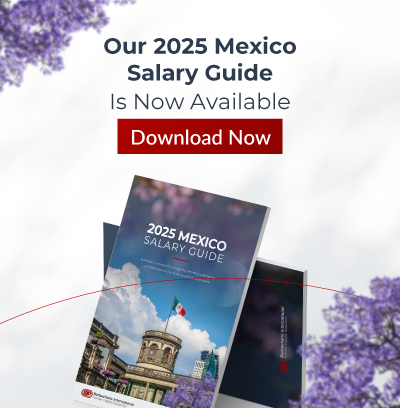
Most executives are confident leading teams in their region. They know the language, the customs, and the unspoken rules. But when the job requires leading across countries, cultures, and expectations, things get more complicated, and the usual playbook often falls short.
We see this firsthand in our cross-border executive searches. A candidate might look perfect on paper: bilingual, with international experience, and strong results. But once in the role, not all of them thrive. Why? Because global leadership isn’t just about language or logistics. It’s about cultural fluency, flexibility, and emotional intelligence in situations where context is everything.
When Experience Isn’t Enough
We worked with a mid-sized U.S.-based connectivity solutions manufacturing firm expanding its operations into Mexico. They had previously hired a well-regarded VP of Operations from Texas with 20+ years of experience and a strong background in lean manufacturing. He spoke Spanish, had managed remote teams, and impressed the board.
But six months in, turnover had increased, production milestones were off track, and team morale was dropping.
What went wrong? Despite his technical strengths, the executive failed to connect with the local team. His communication style, very direct, fast-paced, and bottom-line driven, was interpreted as dismissive and even disrespectful. He didn’t understand the importance of relationship-building or how hierarchy and loyalty function differently in Mexican business culture. He thought he had the right answers; what he lacked was cultural humility.
Barbachano International was engaged to conduct a search for a new VP of Operations. Eventually, the company brought in a new leader: someone who not only spoke the language but also understood how to build trust, motivate through connection, and adapt their leadership to the cultural context. Within 150 days, things turned around.
The Qualities That Set Cross-Border Leaders Apart
Technical skills and global resumes aren’t enough. The most successful cross-border executives we’ve placed tend to share these qualities:
- Cultural agility. Cultural agility. They adjust their approach to fit local norms without compromising their core values. As Forbes points out, cultural intelligence (CQ) isn’t just for expats or global assignments; it’s a leadership skill that helps executives connect, influence, and lead more effectively, even within increasingly diverse domestic teams.
- Empathy and active listening. They listen deeply to what is said and unsaid, and lead with emotional intelligence. MIT Sloan Management Review emphasizes that empathy, combined with competence, helps leaders build inclusive and high-performing cultures, especially in global and multicultural settings.
- Curiosity over certainty. Rather than trying to control outcomes, they ask better questions. As Dr. Bruce Pereira, a well known talent and leadership strategist explains, curiosity allows leaders to challenge assumptions, foster exploration, and adapt to new environments, skills that are especially valuable in unfamiliar cultural and operational contexts.
- Inclusive communication. They know how to communicate in a way that resonates locally, whether that means adjusting to indirect communication in Latin America or embracing consensus-building in multicultural teams. As AIM explains, inclusive communication fosters a sense of belonging, reduces misunderstandings, and strengthens collaboration, especially in diverse, multicultural environments.
Why This Matters Now
Cross-border leadership is no longer the exception; it’s becoming part of everyday business. With more companies investing in Mexico and Latin America, and building multicultural teams across the U.S., we’re seeing a real need for leaders who can do more than just speak the language. They need to understand how to build trust on both sides, how to motivate people in different environments, and how to lead without missing the cultural cues.
A lot of companies underestimate how hard that is. That’s why they come to us, not just for someone with the right title or resume, but for someone who can thrive in both worlds.
At Barbachano International, we’ve spent decades helping clients look beyond the usual checklist. We pay attention to how a leader shows up, how they connect, and whether they’re ready for the real demands of cross-border leadership. Sometimes the best candidates aren’t the most obvious ones, and that’s exactly where we come in.
Where Global Leadership Must Go Next
As more companies grow across the Americas, success won’t come from just having bilingual resumes or offices near the border. It’ll come from leaders who know how to build trust, bring people together, and lead with clarity, especially when things feel uncertain or unfamiliar.
The best cross-border leaders don’t need to have all the answers. They listen. They adapt. They bring out the best in people, no matter where they’re from.
They’re not easy to find. But when you do, they make all the difference.

By Fernando Ortiz-Barbachano
President & CEO of Barbachano International
Barbachano International (BIP) is the premier executive search and leadership advisory firm in the Americas with a focus on diversity & multicultural target markets. Since 1992, BIP and its affiliates have impacted the profitability of over 50% of Fortune 500 Companies. BIP has been recognized by Forbes as Americas’ Best Executive Search Firms and currently ranks #8 and #3 on the West Coast.

